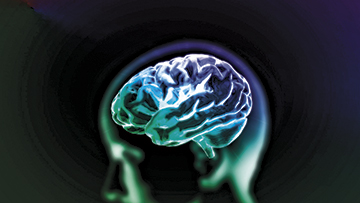By Andria Bianchi
The topic of neurologically determined death (“brain death”) is fraught with ethical and philosophical questions. A 2014 policy by the Canadian Medical Association characterizes neurological death as “catastrophic brain injuries that lead to the irreversible cessation of all clinical brain functions (“whole brain” death).” Some of the primary ethical questions that often arise in relation to this topic consider whether “brain death” is actually a type of death (versus cardiovascular death), whether someone deemed “brain dead” is a person, and whether/how much conflicting cultural and religious conceptions of death ought to be taken into account when it comes to maintaining life-support.
The reason for discussing this topic in this edition of Hospital News is because of an evolving and precedent-setting case in Brampton, Ontario. The case involves a 27-year-old woman named Taquisha McKitty, who was declared brain dead in September 2017. According to the Ontario hierarchy of substitute decision-makers, Taquisha’s parents were responsible for making decisions on their daughter’s behalf. After Taquisha was pronounced dead, her parents requested that she be kept on a mechanical ventilator and received a legal order so that the hospital could not withdraw life-support. According to available news reports, their justification for deciding to keep their daughter on life-support was twofold: (1) Taquisha continues to show signs of life and (2) Taquisha’s Christian beliefs suggest that she is alive insofar as her heart is beating.
A court battle between the McKitty family and the hospital occurred last fall, and in June 2018, Ontario Superior Court Justice Lucille Shaw ruled in a precedent-setting decision that Taquisha should be taken off life-support. Justice Shaw gave the family 30 days to appeal, which they did on July 26th. The family argued that withdrawing Taquisha’s life-support would infringe her rights under the Canadian Charter of Rights and Freedoms.
Similar cases to Taquisha’s continue to occur in Canadian society, such as the case of Shalom Ouanounou who was pronounced brain dead shortly after Taquisha. And similar to Taquisha’s parents, Shalom’s family received an injunction to keep him on a mechanical ventilator. He died shortly thereafter while on life-support.
There are a few reasons that cases similar to Taquisha’s continue to transpire. First, death is a process, and determinations of what classifies a person’s death and when a person should be pronounced dead vary across the globe. According to the World Health Organization, death is typically pronounced when a person’s cardiorespiratory function ceases, however, technological advances have made it such that a person with irreversible brain function loss (which would typically result in the body dying) can have their cardiac function maintained. Because a person’s cardiac function can be maintained even after they are declared dead by neurological criteria, questions of whether and when life-support ought to be discontinued arise. Some cultural and religious conceptions of death may make it such that only cardiovascular death is recognized as legitimate, and so substitute decision-makers may challenge a declaration of death based on neurological criteria if they/their loved one holds a conflicting view.
The above situation prompts us to consider the uncomfortable question of whether, and if so, where, a line ought to be drawn when it comes to providing culturally sensitive care. Some theorists suggest that scientific evidence ought to be the primary guide of determining death and the cessation of life-support. Other theorists, however, say that different conceptions of death ought to be heavily weighted, taking into account varying cultural and religious perspectives. This, of course, leads to the complex topic of how scarce resources (e.g. publically funded hospital beds) ought to be utilized, and whether a person who is declared clinically dead should be offered medical resources in certain contexts.
In addition to different religious and cultural conceptions of death, a family may find it difficult to believe that their loved one is dead when their body maintains some physical functions because of its dependence on technology; ensuring that a family is provided with clear and comprehensible information about brain death may help to mitigate this challenge. In fact, and as discussed with some of my colleagues, offering education to members of our society about the meaning of neurological death and what happens to one’s body when one’s brain no longer functions may be a helpful first step.
Ultimately, a consensus on these complex ethical, philosophical, clinical, and legal questions about brain death has not been achieved. And while I anticipate the debate to continue, it seems that Taquisha’s case and the upcoming legal ruling may at least help to inform future discussions.




